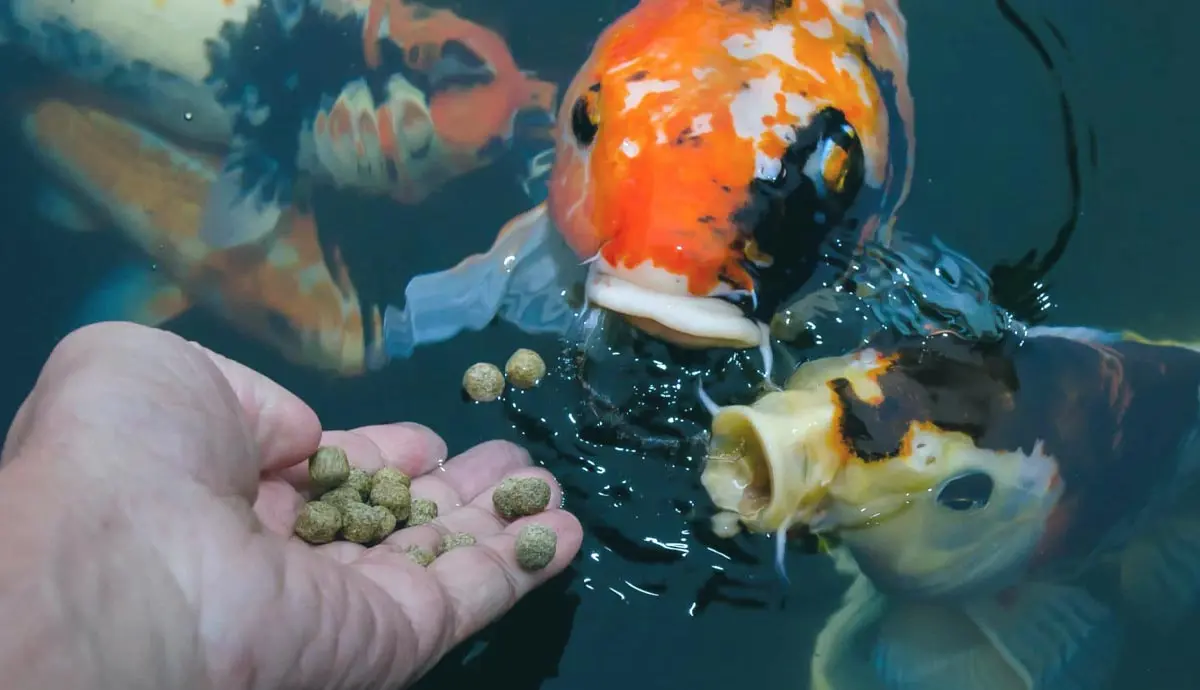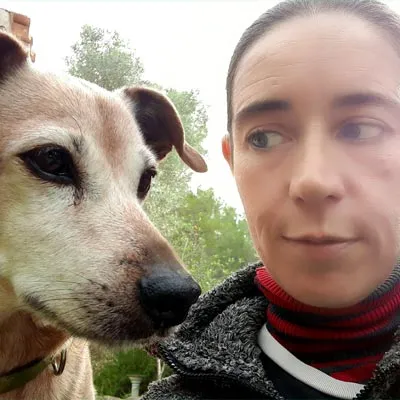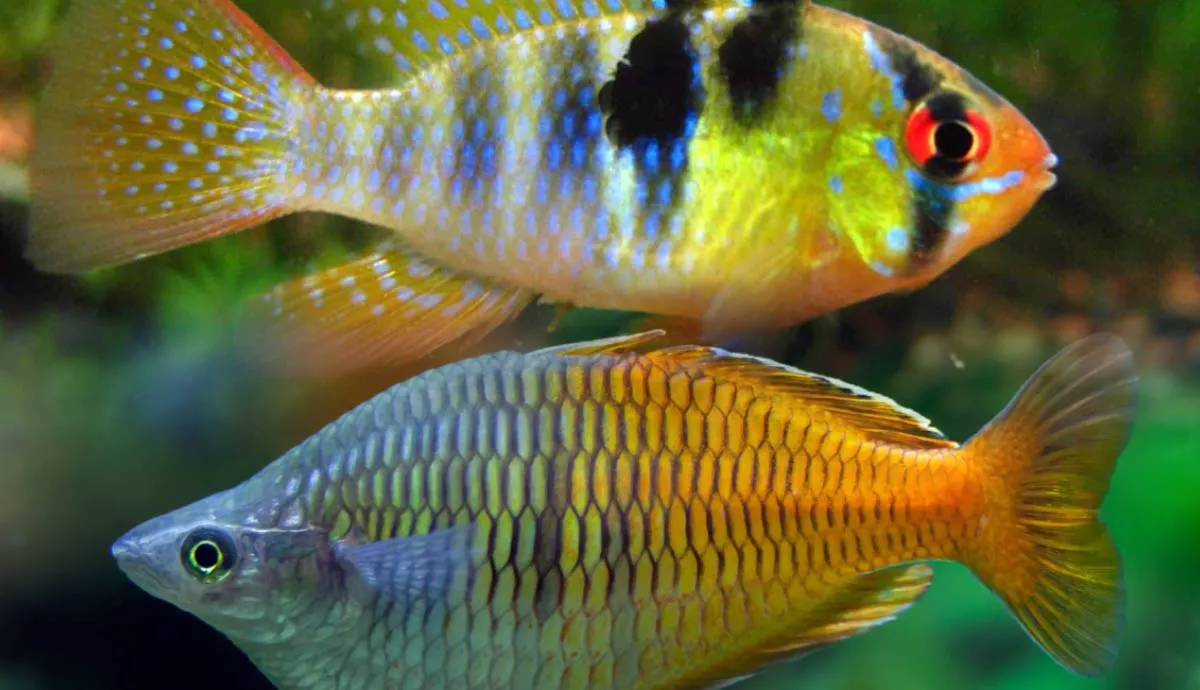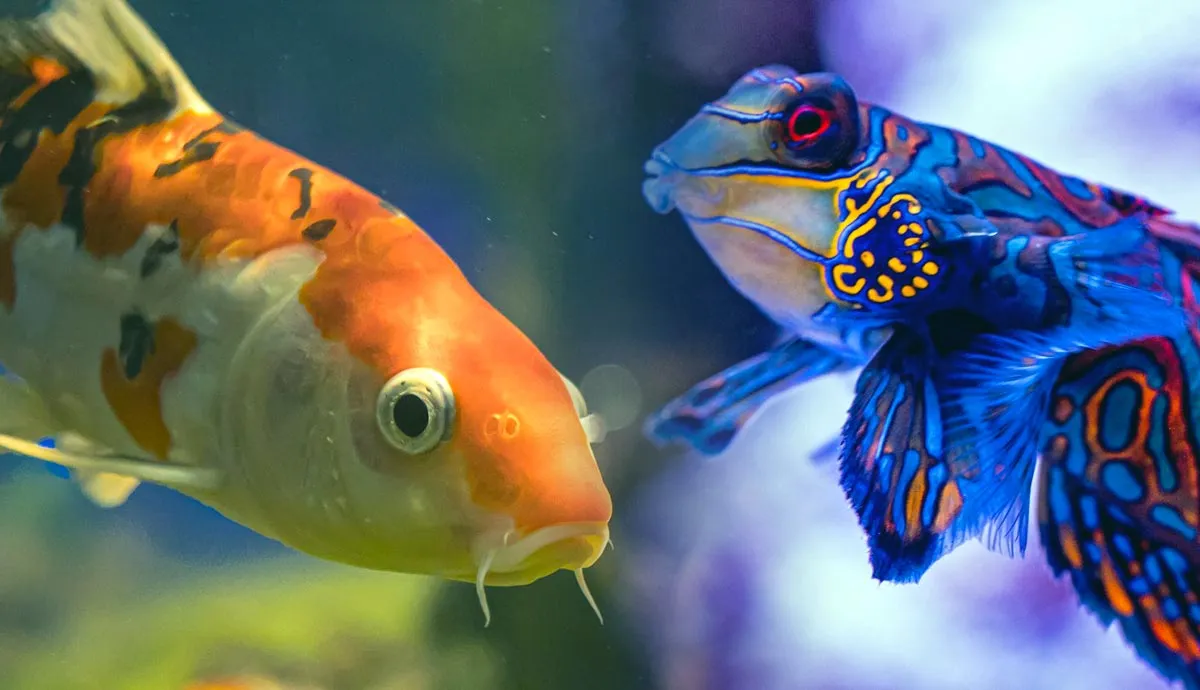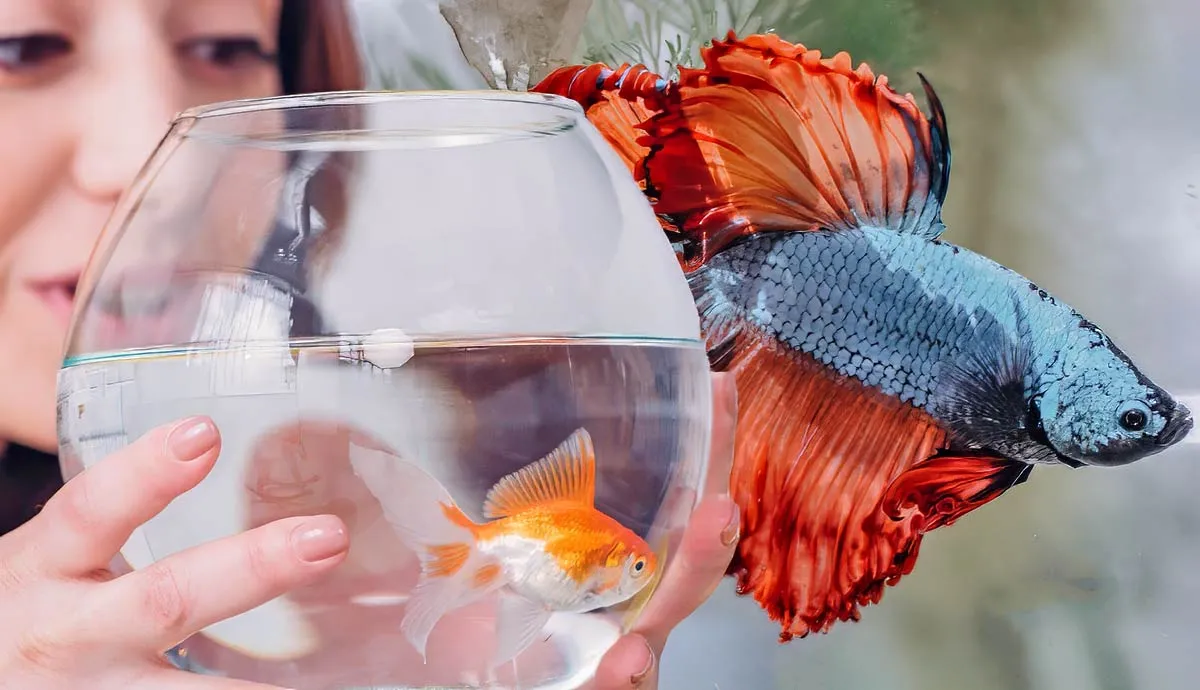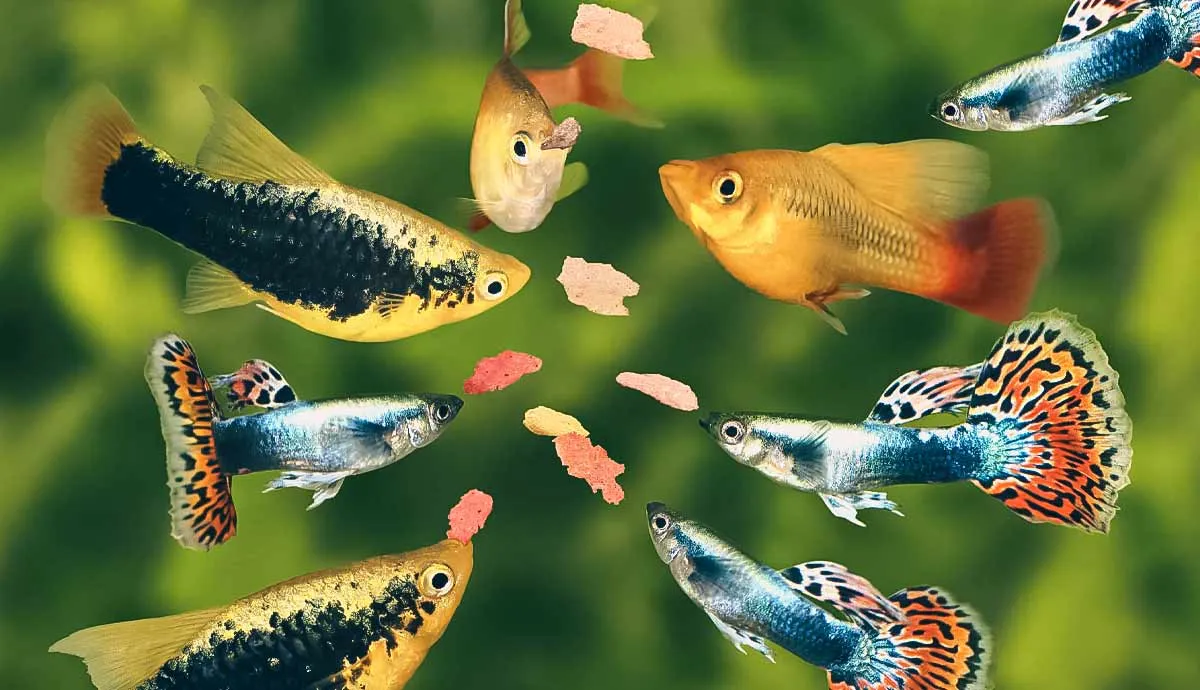As a fish owner, you must learn about the ideal diet for your pet. Like most creatures, each fish species has different nutritional requirements, and you must feed according to their needs. Overfeeding is a common problem with beginner owners, so you must get the balance right. If you want to know how often to feed your pet fish, dive into my guide below.
How Often Should I Feed Pet Fish?
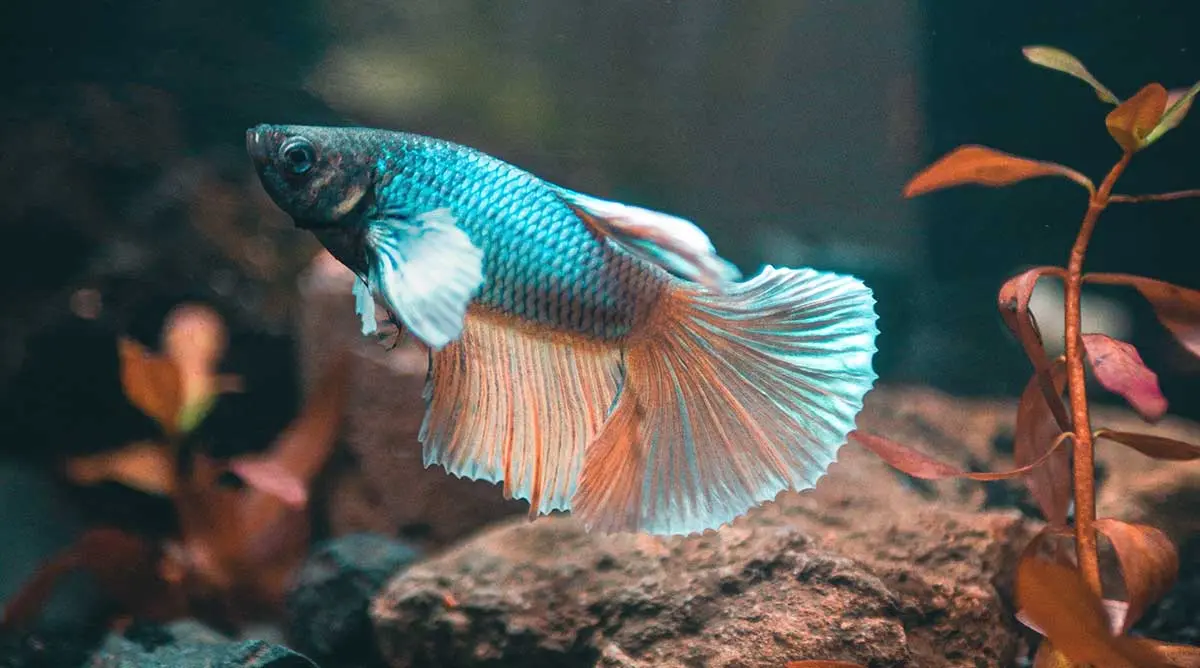
Each fish species is different when it comes to mealtimes. Some fish thrive with regular meals throughout the day, while others can get by eating once every few days. Most fish can survive on one meal a day, but grazers and baby fish need more regular mealtimes - up to 5 times daily.
While fish only need one daily meal to survive, you can make their lives more interesting by giving them 2 -3 smaller meals. Mealtimes provide environment enrichment for fish and help to break the routine. You must consider environmental enrichment when you set up a fish tank.
The best time to feed fish is 30 minutes after lights on and 30 minutes before lights out - which mimics their natural feeding routine. This rule does not apply to nocturnal fish species, which you must feed after everyone else has gone to bed. Like most creatures, fish love routine, so feed them at the same times each day to keep them happy.
Some owners fast their fish for a day or two to prevent obesity. Fasting can benefit large, carnivore fish species, but it's not good for small grazing fish to go for long periods without food.
What Should I Feed Pet Fish?
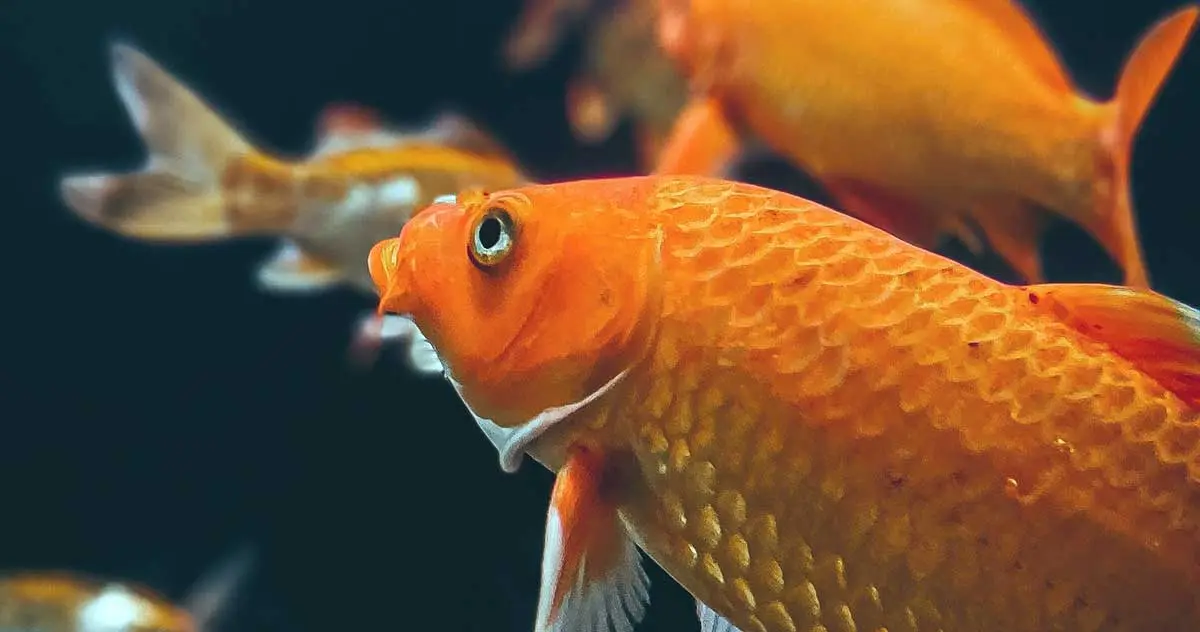
You must consider several things when feeding your fish, including their size and species. Some species are carnivores, and some are omnivores. Some are bottom feeders, while others like to feed from the surface. The bulk of a fish's diet should be species-specific, complete flakes or pellets that are nutritionally balanced. Choose sinking or floating pellets to suit bottom or surface feeders.
Carnivorous species such as Beta fish need live or frozen food in their diet, such as small water creatures, insects, and worms. Herbivore fish need live plants in the aquarium to feed on. You should choose live food, like plants, depending on whether you have a saltwater or freshwater aquarium.
Regardless of the species, fish benefit from a varied diet. Herbivores will nibble on meaty food, and carnivores on plants. You should always choose high-quality food and ensure the fish can fit the pieces in their mouth. You can also give your fish occasional treats as part of a balanced diet.
What Can I Give My Fish as a Treat?
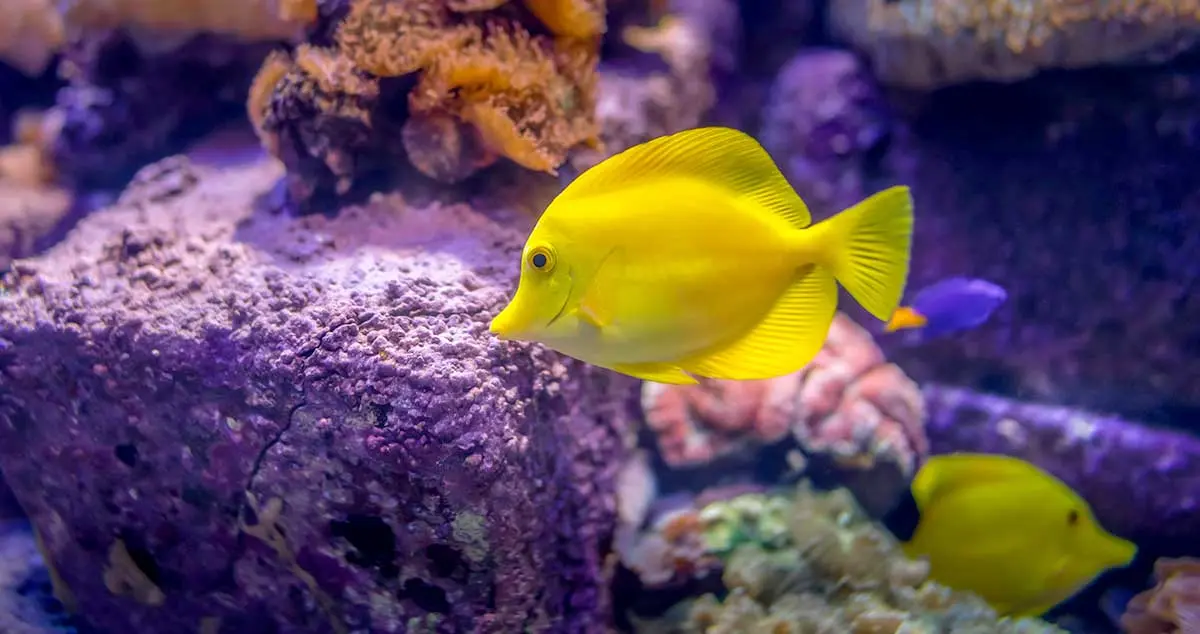
There are many reasons why fish are fantastic pets, and watching them eat tasty treats is just one reason they’re so fun. You can feed many things to fish as rewards, including fruits and vegetables or frozen, live or freeze-dried treats from the pet store. Feeding treats provide environmental enrichment and add extra nutrients to their diet - they are also a fantastic way to bond with fish.
You can drop treats directly into the tank or use a feeding clip or cup to give them to your fish. Aquarium feeding clips and cups are beneficial because they prevent leftovers from floating down to the floor - where they can become moldy and cause pollution.
Treats should only make up a tiny part of a fish's diet. Feeding too many can cause obesity. You should limit treats to two or three times weekly and remove uneaten treats from the tank to prevent pollution. Fish can positively impact human mental health, so giving them treats is the least we can do in return.
How Much Should I Feed Pet Fish?
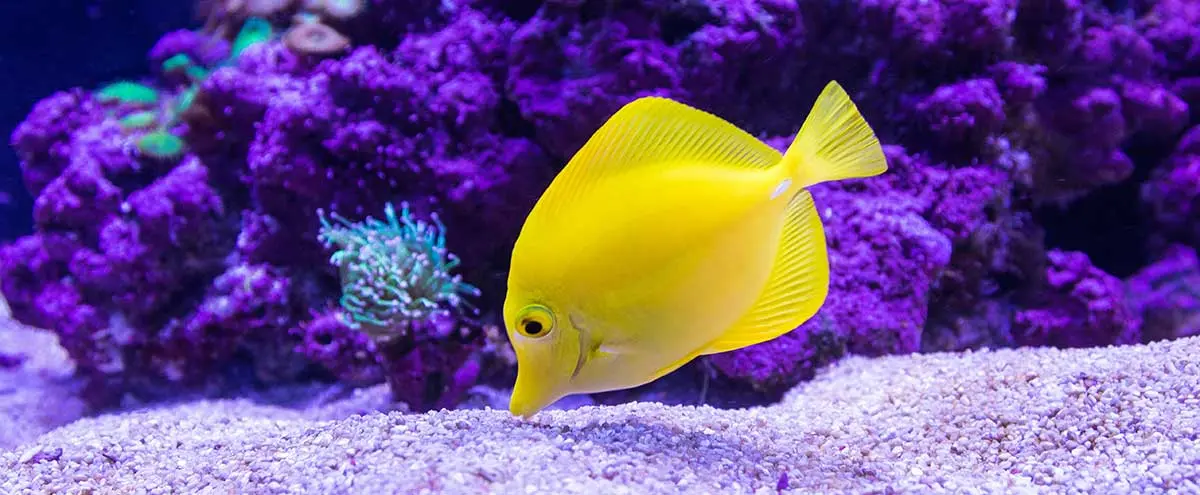
When you feed pet fish, underfeeding is always better than overfeeding. Overfeeding can cause many health problems, but more importantly, leftovers can cause pollution, which is more harmful to a fish's health than overfeeding. You can add freshwater tank cleaners to your aquarium to help prevent pollution.
In the wild, fish eat whenever they can and will always be looking for their next meal. If they are constantly begging for food, they aren’t necessarily hungry - do not give in to their pleas and stick to regular mealtimes.
As a rule, only feed what the fish can eat in 2-5 minutes. If everything is gone in 20 seconds, maybe they need more. If there are lots of leftovers after 5 minutes, feed them less. If you add or remove fish, adjust the feeding amount accordingly. It can take a while to get the balance right, but here are some signs of over and underfeeding fish:
Signs of overfeeding include:
- Excessive pooping
- Swollen, bulging abdomen
- Uninterested in food
- Lots of leftovers which cause pollution and algae growth in the tank
Signs of underfeeding include:
- Skinny fish with sunken abdomen
- Pale colors
- Lethargy
- High mortality rate
How To Feed Pet Fish When I’m On Holiday?
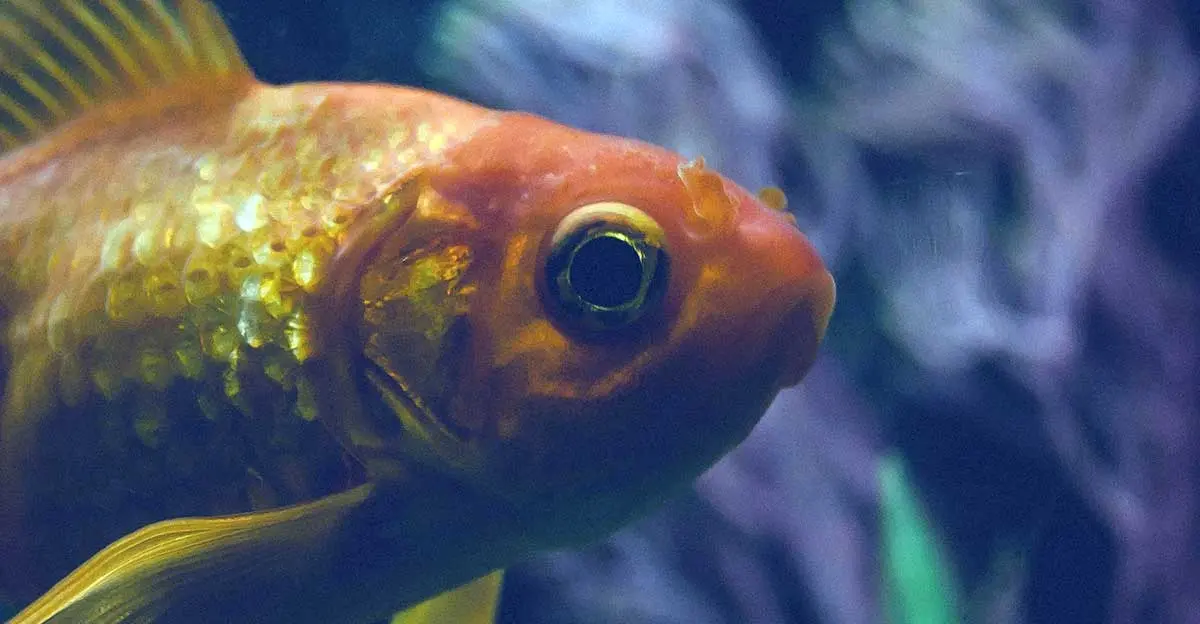
If you go on vacation, you should never leave pet fish alone for long periods. While they may be ok for a day or two without food, many things can go wrong in an aquarium. There may be a problem with the pump, filter, or lights, and even if you have an automatic tank feeder, someone needs to ensure it doesn't break down.
As a responsible fish owner, you must ask a trustworthy person to check your fish daily while you're on holiday. Leave clear instructions for the person checking in, and maybe prepare meals in advance.
Some owners use slow-release feeding blocks to feed their fish while they're away. Slow release feeding blocks gradually dissolve and release food into the water over a few days. Many owners avoid using feeding blocks because they release excessive food and often pollute a tank quickly.
